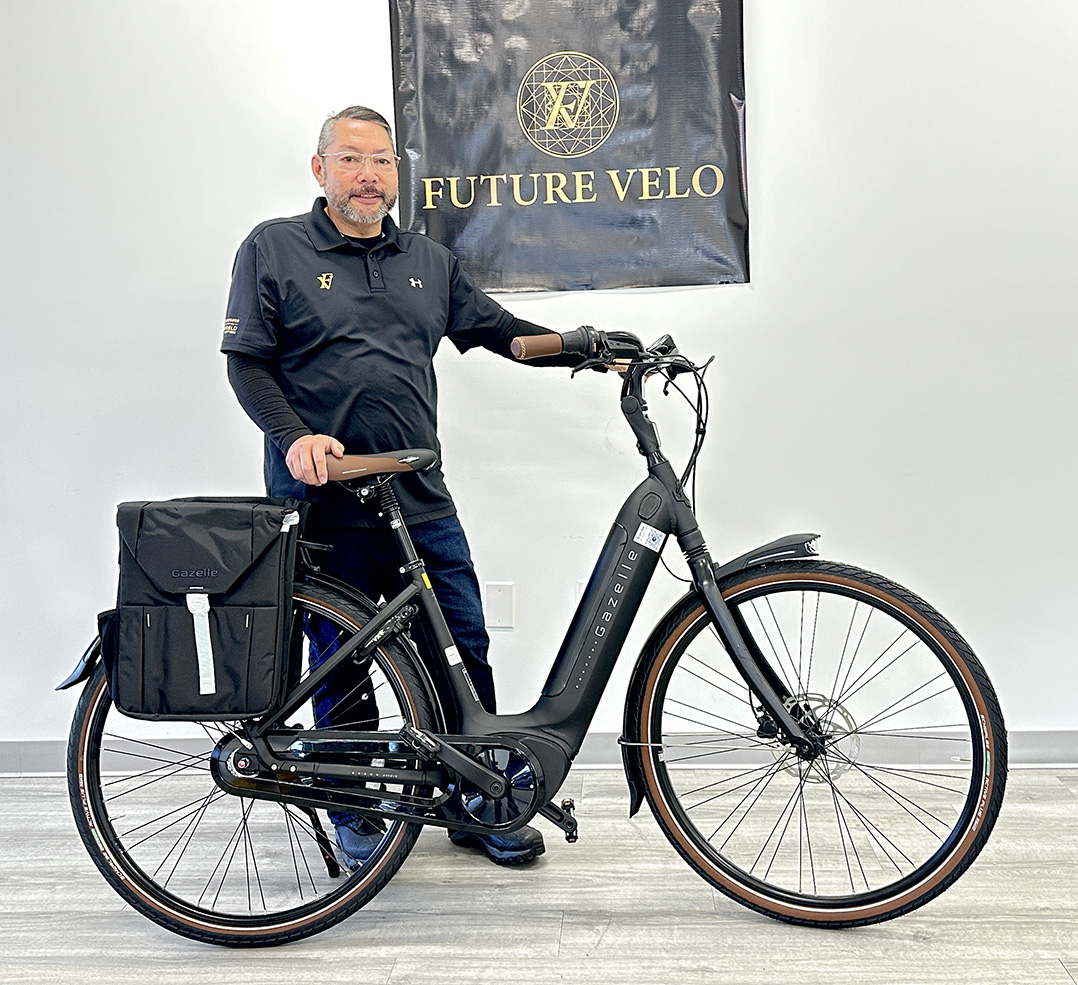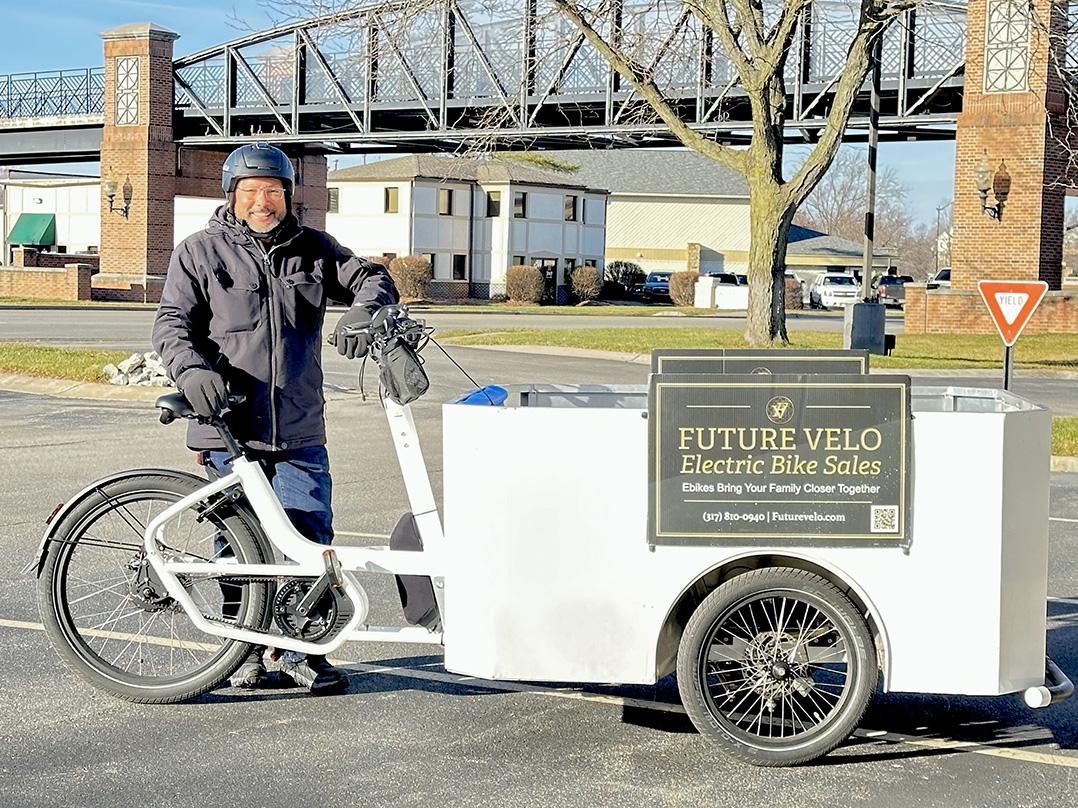Carmel may be best known for its roundabouts, but a local business owner is aiming to help land another distinction for the city.
David Cabanban, owner of Future Velo, wants to see Carmel become the e-bike capital of North America. And he believes the city is well positioned to do it.
“What we have here in Carmel is infrastructure; we’ve spent the money,” Cabanban said. “Now what we need to do is educate people and help them understand that an addiction to an automobile is related to your health. Just like any addiction, it’s not healthy.”
Cabanban practices what he preaches, as he and his wife ditched automobiles for e-bikes five years ago. Carmel’s network of trails and other pedestrian-friendly infrastructure makes it easy to commute to his e-bike shop on Carmel Drive or run errands by bike, he said, and if he needs to make a longer trip, he uses a rideshare service.
“We do not miss having a car,” said Cabanban, who offers his expertise as part of the Carmel Clay Active Transportation group.
David Littlejohn, City of Carmel alternative transportation coordinator, isn’t expecting everyone to become car-free, but he is among those working to continue improving local bike infrastructure. He said the growth in e-bike popularity doesn’t change Carmel’s infrastructure plan, but he believes they will lead to increased use of local trails.
“E-bikes change the game, because what (researchers) found is that people who purchase an e-bike ride more frequently and ride longer distances,” said Littlejohn, who often transports his young son to school in a cargo e-bike. “If you take those two things into account, we’re going to see more people riding.”
Sales of e-bikes, which have a motor to provide a boost, have been on the rise in recent years. The COVID-19 pandemic sparked a spike in interest, according to Fortune Business Insights, which is also predicting a compound annual growth rate in e-bike sales of 15.6 percent from 2023 to 2030.
Cabanban, who moved to Carmel from Chicago in 2017, said he’s seen an increase in families looking to purchase e-bikes to enjoy together, and that the technology has become popular with those near retirement age.
“Most Baby Boomers in the United States are facing some kind of physical challenge. They may not have the physical fitness to ride a bike, because riding the bike takes a lot of stamina,” he said. “Most people don’t ride bikes more than three or four miles. You can go up to 90 miles on the average electric bike today. It gives them peace of mind that if they go out, they’re going to be able to get back.”
Cabanban, who reached the highest level of amateur track cycling and was invited to the sport’s Olympic training center in 1983, said national research has shown that more than 50 percent of all trips in the U.S. are less than two miles and only 5 percent are longer than 50 miles. In his view, that means an e-bike could be used for the vast majority of outings.
“Particularly after COVID, there are so many people that are now working from home, which means they don’t necessarily need to go to an office, but they still need to go to the grocery store,” Cabanban said. “So, if you live two miles from the grocery store, an electric bike is a perfect tool, because you can load it up and you don’t even break a sweat, if you don’t want to.”
Cabanban aims to answer questions and share stories from the e-biking community through his podcast, which can be accessed through futurevelo.com/podcast.
As for Carmel becoming the e-bike capital of North America, Kevin Whited, the city’s transportation development coordinator, believes it’s an attainable goal. He said it aligns with the vision of former Mayor Jim Brainard, who helped Carmel become more pedestrian and bicycle friendly during his 28 years in office.
“I think that’s a completely doable thing,” Whited said. “We have the infrastructure.”

Prepared for anything
Because he no longer owns a car, David Cabanban sometimes e-bikes through wind, rain or frigid temperatures. He’s purchased gear to handle whatever nature throws at him and said it’s not much different than preparing for other outdoor winter endeavors, such as skiing.
“It’s the same equipment, because I’m dealing with wind chill,” he said. “On the bike I’m going about 15 miles per hour, and if I were on a ski hill, I’d be going about the same.”
When it rains, Cabanban wears a poncho and shoe covers or rain boots.





